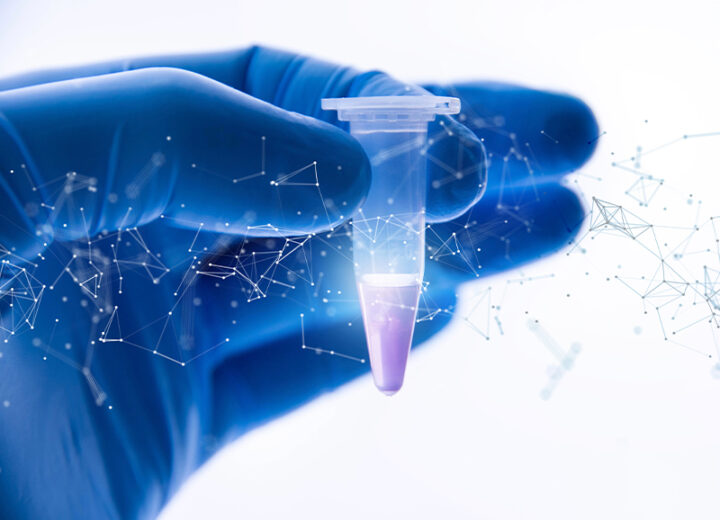7 November 2024
The impact of recombinant enzymes in vaccine production

The role of recombinant enzymes in vaccine production cannot be overstated. They are a game-changer in how we approach the development of life-saving treatments. As vaccine technology continues to evolve, the demand for efficient, scalable methods to produce high-quality vaccines has skyrocketed.
Recombinant enzymes have stepped in to fulfill that need. They offer significant benefits over traditional methods and far-reaching impacts on global healthcare.
A brief history of enzymes in vaccine development
The use of enzymes in vaccine technology dates back to the early 20th century. Researchers first recognized their potential to facilitate chemical reactions and improve vaccine formulation. Traditional vaccines, which often relied on the use of weakened or inactivated viruses, presented various challenges:
- Lengthy production timelines: Producing traditional vaccines can take months or even years, from initial research to distribution. The process of cultivating live viruses or purifying protein subunits is time-consuming and complex.
- Scalability issues: Scaling up production to meet global demand is often a logistical nightmare, especially during pandemics. Facilities are limited, and the production process can bottleneck at various stages.
- Cold chain logistics: Many traditional vaccines require strict temperature control throughout transportation and storage. This increases the cost and difficulty of global distribution, especially in low-resource settings.
- Risk of contamination: Using live or attenuated viruses introduces the risk of contamination. In turn, this leads to safety concerns and potential delays in vaccine release.
- Strain-specific limitations: Traditional vaccines often target specific strains of a virus. When viruses mutate—as with influenza—this can render a vaccine less effective or obsolete, requiring constant reformulation.
RELATED: Comparing CrisBio® to bio-fermentation for pyrophosphatase
These challenges underlined the need for more efficient, scalable, and adaptable methods of vaccine production. Enzymes, however, offer a more reliable and controllable way to produce vaccine antigens.
How recombinant enzymes work in vaccine production
In vaccine production, enzymes play a crucial role in various biochemical processes. Recombinant enzymes are lab-engineered to mimic or enhance the natural functions of enzymes. In the context of vaccines, they are often used to modify proteins, synthesize nucleotides, and improve the stability and effectiveness of the vaccine antigen.
The ability to tailor-make enzymes for specific tasks, such as facilitating the protein expression needed for a vaccine, allows manufacturers to streamline production processes and ensure higher efficacy.
Recombinant enzymes also play a significant role in the development of vaccines for protein expression and target protein production. These processes help create effective immunizations by precisely manipulating biological molecules. In doing so, recombinant enzymes have paved the way for faster, more targeted vaccine production. This rapidity also enables researchers to develop more innovative treatments across various disease categories.
How recombinant enzymes are used in today’s vaccine technologies
Today, recombinant enzymes are at the forefront of modern vaccine technologies.
They play a key role in the production of recombinant protein vaccines. These vaccines are made by isolating a specific protein from a pathogen—such as a virus—and producing it using recombinant DNA technology. Once the target protein is expressed in a suitable host (often bacteria or yeast), it can be harvested and purified to form the basis of the vaccine.
YOU MAY ALSO LIKE: The future of recombinant enzyme production in life sciences
Another significant contribution is post-translational modifications. This process involves altering proteins after they’ve been synthesized. This is a critical step in ensuring that vaccines are both stable and effective. Why? Because modifications can enhance the immune response and improve the overall quality of the vaccine.
In addition, recombinant enzymes help facilitate this process by ensuring the production method is stable and efficient. For instance, Cocoon Bioscience’s enzyme development offering can optimize protein production for custom vaccine formulations.
Recombinant enzymes address many of the challenges in traditional vaccine production.
Here’s how:
- Speeding up production: recombinant enzymes streamline the synthesis of proteins and nucleotides, significantly reducing production timelines. This was especially evident in the rapid development of COVID-19 vaccines. During this pandemic, vaccines were produced in record time thanks to these technologies.
- Improved scalability: enzyme-based production methods, like those used in recombinant protein vaccines and mRNA vaccines, are easier to scale up. Enzymes can be produced in large quantities without the need for cultivating live viruses, removing a major bottleneck in vaccine manufacturing.
- Simplified logistics: many recombinant vaccines, particularly those based on recombinant proteins, are more stable than traditional vaccines, which require constant refrigeration. This opens up the possibility of more flexible storage and transportation, lowering distribution costs and expanding access in underserved regions.
- Enhanced safety and quality control: by removing live pathogens from the equation, recombinant vaccines reduce the risk of contamination. The precision of recombinant enzymes allows for high-quality, reproducible vaccines with a much lower risk of adverse effects.
- Broader adaptability: with recombinant technology, it’s easier to modify vaccines to target different strains of a virus. Or, they can even create multivalent vaccines that protect against multiple pathogens at once. This adaptability is critical in fast-moving situations like flu seasons or emerging pandemics.
A key example is the mRNA vaccines. Enzymes are essential for synthesizing the mRNA strands that carry the genetic information needed to create a specific antigen. In the case of COVID-19 vaccines, recombinant enzymes were used to manufacture the mRNA that encodes the spike protein of the SARS-CoV-2 virus. Once injected, the body’s cells use this mRNA to produce the spike protein, which then triggers an immune response. This response creates protective immune defenses that help guard against future infections.
Examples of recombinant enzymes accelerating vaccine innovation
Let’s take a closer look at real-world examples. The COVID-19 pandemic highlighted how vital recombinant enzymes are in vaccine production. Both the Pfizer-BioNTech and Moderna vaccines, which are based on mRNA technology, relied heavily on recombinant enzymes to synthesize the mRNA and facilitate its delivery into human cells. These enzymes played a pivotal role in ensuring the vaccines could be produced at the scale and speed required to meet global demand.
In addition to mRNA vaccines, recombinant enzymes are also used in the production of culture supernatant-based vaccines, where the vaccine antigens are produced by cells growing in culture and then released into the surrounding media. Recombinant enzymes help optimize this process, ensuring that the antigens are of high quality and produced efficiently. This method is particularly useful for producing complex proteins that may be difficult to synthesize through traditional means.
What does the future hold for recombinant enzymes in vaccine production?
As we look to the future, the role of recombinant enzymes in vaccine production is only set to expand. With continued advances in vaccine technology, we can expect even more innovative uses of enzymes, particularly in areas like gene sequencing and personalized vaccines.
Likely, enzymes will play a crucial role in improving the precision and effectiveness of future vaccines, enabling the development of treatments that are tailored to specific populations or even individuals.
Furthermore, as the world continues to grapple with emerging diseases and potential pandemics, the ability to rapidly produce vaccines will be critical. Recombinant vaccines’ high-quality and scalable processes will be at the heart of these efforts.
Partner with Cocoon for custom enzyme solutions
At Cocoon Bioscience, our commitment to innovation in enzyme development means we are ready to support the life sciences industry in this vital area.
We specialize in developing custom recombinant enzymes for industries at the cutting edge of vaccine research and development. Whether you’re working in mRNA vaccine production, gene sequencing, or protein expression, our enzyme development services are designed to meet your specific needs. Partner with us to leverage the latest advancements in enzyme technology and ensure your projects benefit from high-quality, reliable and affordable solutions.
Explore our enzyme development offerings here and stay ahead in the rapidly evolving world of R&D.


